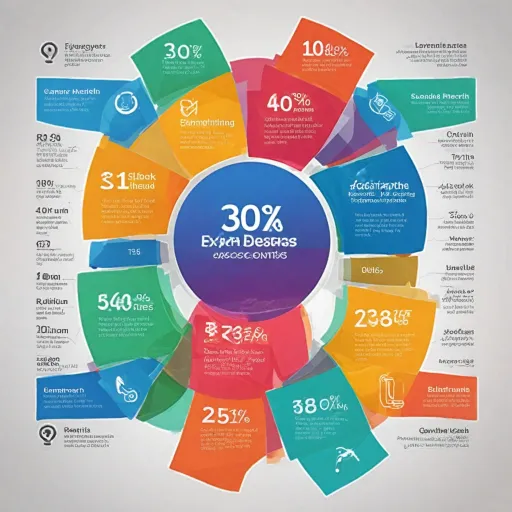
Understanding inside insight talent solutions in HR
What Sets Inside Insight Talent Solutions Apart?
Inside insight talent solutions are transforming the way organizations approach talent acquisition and management. Unlike traditional methods, these solutions leverage advanced data and machine learning to provide a deeper understanding of both candidates and the hiring process. Companies are now able to tap into a wealth of insights that help them fill roles more efficiently and improve the overall candidate experience.
Integrating Data for Smarter Hiring
Organizations are increasingly turning to inside talent solutions to optimize their recruitment strategies. By analyzing data from various sources, such as candidate sourcing platforms, interview scheduling tools, and background checks, HR teams can make more informed decisions. This data-driven approach not only enhances the employer brand but also streamlines the hiring process, making it more paper free and efficient.
- Improved candidate sourcing through targeted insights
- Faster interview scheduling and reduced time-to-hire
- Enhanced acquisition strategy based on real-time labor market trends
Why Organizations Are Adopting These Solutions
With the job market becoming more competitive, businesses need to stand out to attract top talent. Inside insight talent solutions offer a strategic advantage by providing actionable insights that support better recruitment outcomes. From identifying the right candidates to refining the hiring process, these solutions help companies stay ahead in the evolving world of human resources.
For a deeper look at how artificial intelligence is shaping HR practices, check out this exploration of AI in HR departments.
How AI enhances talent acquisition
Transforming Talent Acquisition with AI
Artificial intelligence is changing the way organizations approach talent acquisition. By leveraging machine learning and data-driven insights, companies can streamline their hiring process, making it more efficient and effective. AI-powered solutions help businesses identify top talent faster, reduce manual tasks, and enhance the overall candidate experience.
- Candidate Sourcing: AI tools scan the job market and labor market data to find qualified candidates who match specific job requirements. This helps organizations fill positions quickly and ensures a better fit for both the employer and the candidate.
- Interview Scheduling: Automated systems can handle interview scheduling, reducing administrative workload and speeding up the recruitment process. This paper free approach allows HR teams to focus on more strategic tasks.
- Background Checks: AI-driven background checks provide faster and more accurate results, minimizing risks and improving compliance during the hiring process.
- Candidate Experience: Personalized communication and timely feedback, powered by AI, enhance the candidate journey and strengthen the employer brand.
Inside insight talent solutions use these technologies to provide a deeper understanding of both candidates and business needs. By analyzing large volumes of data, AI uncovers patterns and trends that inform acquisition strategies and help organizations stay competitive in the job market.
For a real-world example of how AI is shaping HR practices, you can read about the role of AI in the JCPenney HR department. This case study highlights how inside talent solutions are being implemented to improve recruitment outcomes and drive business success.
As companies continue to adopt AI-powered talent solutions, the focus shifts from traditional hiring methods to more strategic, data-driven approaches. This evolution not only improves efficiency but also supports better decision-making and long-term growth for organizations.
Reducing bias in recruitment with AI
AI’s Role in Fairer Recruitment
Artificial intelligence is transforming how organizations approach recruitment, especially when it comes to reducing bias. Traditional hiring processes often rely on subjective judgments, which can unintentionally favor certain candidates over others. By integrating AI-powered talent solutions, companies can create a more objective and equitable hiring process. AI-driven tools analyze large volumes of candidate data, from resumes to interview responses, using machine learning algorithms. These systems are designed to focus on skills, experience, and qualifications, rather than personal characteristics that could introduce bias. For example, automated candidate sourcing and interview scheduling platforms help ensure every applicant is evaluated consistently, regardless of background.- Structured screening: AI can standardize resume reviews and background checks, minimizing the influence of unconscious bias in early candidate selection.
- Consistent interview questions: Automated interview platforms provide the same set of questions to all candidates, supporting a fairer comparison of responses.
- Data-driven insights: Machine learning models highlight patterns in hiring data, helping organizations identify and address potential bias in their acquisition strategy.
Data-driven performance management
Turning Data into Actionable Insights
Modern human resources teams are increasingly relying on data-driven approaches to manage performance and drive business outcomes. By leveraging inside insight talent solutions, organizations can collect and analyze vast amounts of data from various stages of the talent acquisition and employee lifecycle. This shift from intuition-based decisions to evidence-based strategies is transforming how companies approach performance management.
- Continuous feedback: AI-powered platforms enable real-time feedback, making it easier for managers and employees to track progress and adjust goals. This ongoing process supports a more agile and responsive workforce.
- Objective performance metrics: Machine learning algorithms analyze data from multiple sources, such as candidate sourcing, interview performance, and on-the-job results. This helps reduce subjectivity and ensures fairer evaluations across the hiring process and ongoing employment.
- Personalized development plans: With deeper understanding of employee strengths and gaps, organizations can create tailored development strategies. This not only improves the candidate experience but also helps retain top talent by supporting growth within the company.
Enhancing the Employer Brand with Transparent Processes
Transparent, data-driven performance management demonstrates a commitment to fairness and growth. When candidates and employees see that decisions are based on clear, consistent data, it strengthens the employer brand and builds trust. This is especially important in a competitive job market, where attracting and retaining talent is a top priority.
Companies that embrace paper free, AI-powered solutions for performance management can streamline processes like background checks, interview scheduling, and ongoing evaluations. These improvements not only save time but also provide valuable insights for refining acquisition strategy and improving overall candidate and employee experience.
Driving Business Value Through Informed Decisions
Ultimately, integrating data-driven performance management with inside insight talent solutions empowers organizations to make better decisions at every stage of the hiring and talent management process. By aligning strategies with real-world data and insights, businesses can fill critical roles more effectively, reduce turnover, and build a resilient workforce ready to meet future challenges.
Improving employee retention through predictive analytics
Predictive Analytics: A Game Changer for Employee Retention
Predictive analytics is transforming how organizations approach employee retention. By leveraging machine learning and data-driven insights, companies can anticipate turnover risks and proactively address them. This shift from reactive to proactive retention strategies is helping businesses keep top talent and maintain a competitive edge in the job market.- Early identification of flight risks: AI-powered solutions analyze patterns in employee behavior, engagement, and performance. This enables HR teams to spot warning signs—like declining productivity or reduced participation—before they escalate into resignations.
- Personalized retention strategies: With a deeper understanding of individual motivations and career goals, organizations can tailor their retention efforts. For example, offering targeted development opportunities or flexible work arrangements based on data-driven insights.
- Optimized candidate experience: The same tools used in talent acquisition, such as candidate sourcing and interview scheduling, can be applied internally. This ensures that employees feel valued and see clear pathways for growth within the company.
From Data to Actionable Insights
The real power of inside insight talent solutions lies in turning raw data into actionable strategies. By integrating information from performance reviews, engagement surveys, and even background checks, HR teams can build a comprehensive picture of what drives retention. This approach helps organizations fill gaps in their employer brand and improve the overall employee experience.| Data Source | Insight Generated | Retention Action |
|---|---|---|
| Performance Metrics | Identify high-potential employees | Offer leadership development |
| Engagement Surveys | Spot disengaged teams | Implement team-building strategies |
| Exit Interviews | Understand reasons for leaving | Address systemic issues |
Building a Sustainable Retention Process
Companies that embrace predictive analytics in their retention strategies are seeing measurable improvements. Not only does this approach reduce turnover, but it also enhances the employer brand and supports a more resilient business. By making retention a data-driven process, organizations can adapt to changes in the labor market and ensure they keep their best people engaged and motivated. For those looking to go paper free or seeking a white paper download on these solutions, many providers now offer resources that detail how predictive analytics can be integrated into existing HR processes. This is a crucial step for any business aiming to future-proof its talent solutions and stay ahead in the evolving job market.Future trends in AI-powered HR solutions
Emerging Technologies Shaping HR
Artificial intelligence is rapidly evolving, and its impact on human resources is only set to grow. Organizations are increasingly leveraging machine learning and advanced analytics to refine their talent acquisition strategies, streamline the hiring process, and enhance the overall candidate experience. These technologies are not just about automating repetitive tasks—they are fundamentally changing how companies approach candidate sourcing, interview scheduling, and background checks.
Personalization and Employee Experience
One of the most promising trends is the use of AI to personalize the employee journey. From the first interaction with a candidate to ongoing performance management, AI-driven solutions can tailor communications, recommend development opportunities, and even predict when top talent might be at risk of leaving. This level of personalization helps organizations fill roles more efficiently and strengthens their employer brand in a competitive job market.
Data-Driven Decision Making
As data becomes more central to HR, companies are moving toward paper free processes and relying on real-time insights to guide their decisions. Predictive analytics are now used to anticipate workforce needs, optimize recruitment strategies, and improve retention. These insights allow HR teams to be proactive rather than reactive, ensuring that business objectives align with talent solutions.
Ethical AI and Transparent Processes
With the rise of AI in recruitment and talent management, there is a growing emphasis on transparency and ethical use of data. Organizations are expected to ensure that their AI systems are fair, explainable, and free from bias. This focus on responsible AI not only builds trust with candidates but also supports a more inclusive hiring process.
Continuous Learning and Adaptation
- AI-powered HR solutions are constantly learning from new data, enabling organizations to adapt quickly to changes in the labor market.
- Inside insight talent solutions are helping HR teams stay ahead by providing actionable insights for both immediate hiring needs and long-term workforce planning.
- Companies are increasingly investing in upskilling HR professionals to better understand and manage these advanced technologies.
What’s Next for AI in HR?
Looking ahead, the integration of AI in HR will continue to accelerate. Organizations that embrace these innovations will be better positioned to attract, retain, and develop top talent. As the job market evolves, the ability to leverage inside insight and data-driven strategies will be a key differentiator for employers seeking to build a resilient and agile workforce.
For those interested in a deeper understanding of how AI is transforming HR, many companies now offer white papers and downloadable resources to support ongoing learning and strategy development.













